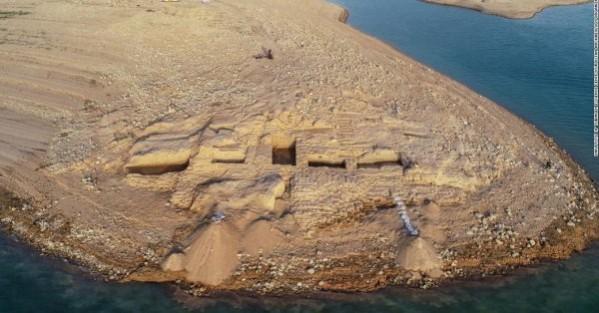
A drought in Iraq has led to the discovery of a 3,400-year-old ancient palace in the Mosul Dam on the Tigris River's banks. The palace, believed to belong to the Mittani Empire, had emerged after the water levels at the reservoir went down because of the drought.
The palace is situated in the Kurdistan region of Iraq. It had first made an appearance in 2010 but the excavation took place recently. Archaeologists have said that they do not know when the structure will go back underwater. Just recently, the structure was submerged for an entire night and had made an appearance the next morning.
This is a particularly exciting discovery for archaeologists since there is not much information about the Mittani Empire, reports CNN. "The find is one of the most important archaeological discoveries in the region in recent decades," said Hasan Ahmed Qasim, a Kurdish archaeologist.
The report goes on to state that the structure of the palace was such that it would have been on an elevated terrace and a wall of mud bricks was added to the structure to give it more stability. Ivana Pulijiz, an archaeologist from the University of Tübingen's Ancient Near Eastern Studies, added that there were mud walls in the palace which were more than two metres tall and some were also two metres thick.
The palace, also called Kemune, was said to have plastered walls with various paintings on them, a source of excitement for them since the Mittani Empire is one of the least researched empires in the Ancient Near Eastern civilization.
"Kemune is only the second site in the region where wall paintings of the Mittani period have been discovered," CNN quoted Pulijiz as saying in an email.
Other artefacts recovered from Kemune include ten clay tablets. The writings on the tablet are in an ancient form, known as cuneiform and have been sent to Germany for translation.
"From the texts, we hope to gain information on the inner structure of the Mittani empire, its economic organisation, and the relationship of the Mittani capital with the administrative centres in the neighbouring regions," Puljiz added in her email to CNN.









